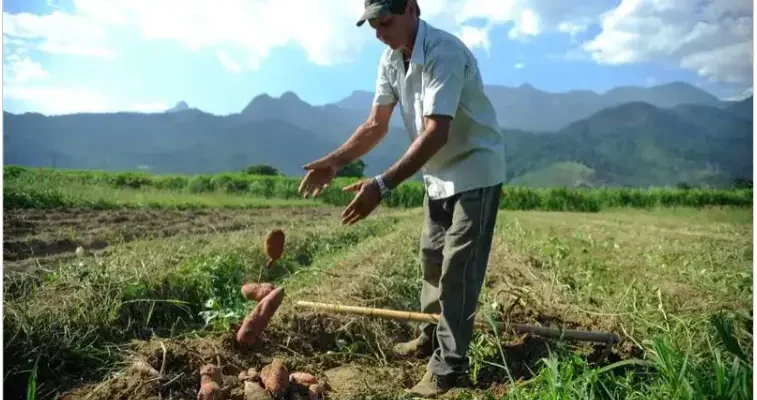Source: https://www.gazetadopovo.com.br/ – By Natália Peres FOZ DO IGUAÇU
The proposal for rural credit, which has been presented at international forums, promises to correct a historical distortion: although agribusiness represents around 25% of the national GDP, the sector accounts for only 12% of the credit granted in the country. (Photo: Tomaz Silva/Agência Brasil)
A partnership between the National Association of Credit Bureaus (ANBC), the Central Bank and the Ministry of Agriculture and Livestock (MAPA) will give rise to the so-called “agro bureau”, an unprecedented model of data integration and financial intelligence aimed at small and medium-sized rural producers. The proposal for rural credit, which has been presented at international forums, promises to correct a historical distortion: although agribusiness accounts for around 25% of the national GDP, the sector only accounts for 12% of the credit granted in the country.
“There's something wrong when a sector that drives a quarter of the Brazilian economy has so little access to credit,” says Elias Sfeir, president of ANBC. According to him, the central problem lies in the lack of information about borrowers.
“Around 80% of small and medium-sized farmers have negative credit not because they are bad payers, but because the bank has no visibility, it doesn't know who the producer is. The borrower lacks information and this reduces confidence in the financial system,” he explains. The “agro bureau” has emerged as an alternative to this scenario.
The partnership provides for the sharing of data between the Central Bank (BC) and the Ministry of Agriculture, allowing credit bureaus to build a supervisory panel on rural financing lines. The system will offer indicators and metrics that will help the federal government to design more precise public policies and the Central Bank to monitor the performance of credit in the sector that includes rural producers.
“It's a public-private partnership that benefits everyone, but the biggest beneficiary will be the family farmer and the small producer,” summarizes Sfeir. The model was recently presented to the World Bank and has attracted attention for its innovation.
“We are creating a credit paradigm in the world. The topic is becoming an international reference, and Brazil is a pioneer in this approach,” says the president of ANBC, who is taking part in Futurecom 2025 in São Paulo - one of the biggest technology and innovation events in Latin America.
Sfeir is part of the panel “Future Agro: embarking on innovations for a greener and more competitive agribusiness”, alongside leaders from the technology and sustainability sector. For the executive, credit is the key to productivity and sustainability in the countryside.
“Rural credit is a lever for competitiveness. When applied judiciously, it becomes a tool for encouraging sustainability, generating gains for the producer and for society”, he says.
He also advocates the creation of an “agro credit score”, which recognizes the specificities of the sector and expands access to financing with fairer interest rates for rural producers. “A specific evaluation model makes the system more inclusive and attracts private and international capital, with a focus on sustainability,” he says.
Sfeir recalls that in 2024, credit for agribusiness amounted to R$ 400 billion in public lines and R$ 600 billion in private operations - expressive figures, but still insufficient given the sector's potential. “There is enormous room for growth. And this will only be possible with information and technology,” he says. He adds that ANBC has also been discussing new financing frontiers, such as cross-border credit - loan operations between countries - which are already used in Asian markets.
“While here we are still discussing inequality, Asia is already talking about prosperity. We need to adjust our focus,” he says. Present in international debates and active in Brazil and abroad, ANBC has been consolidating itself as a reference in the modernization of credit and the integration of data between public and private institutions.
“Having the same conversations with the same people expecting different results is insane. Our role is to provoke new discussions and bring solutions that are already being applied abroad. The ‘birô agro’ is a step in this direction,” Sfeir said.
Read more
ANBC highlights key role of AI for credit sustainability at the FELABAN Assembly in Miami


